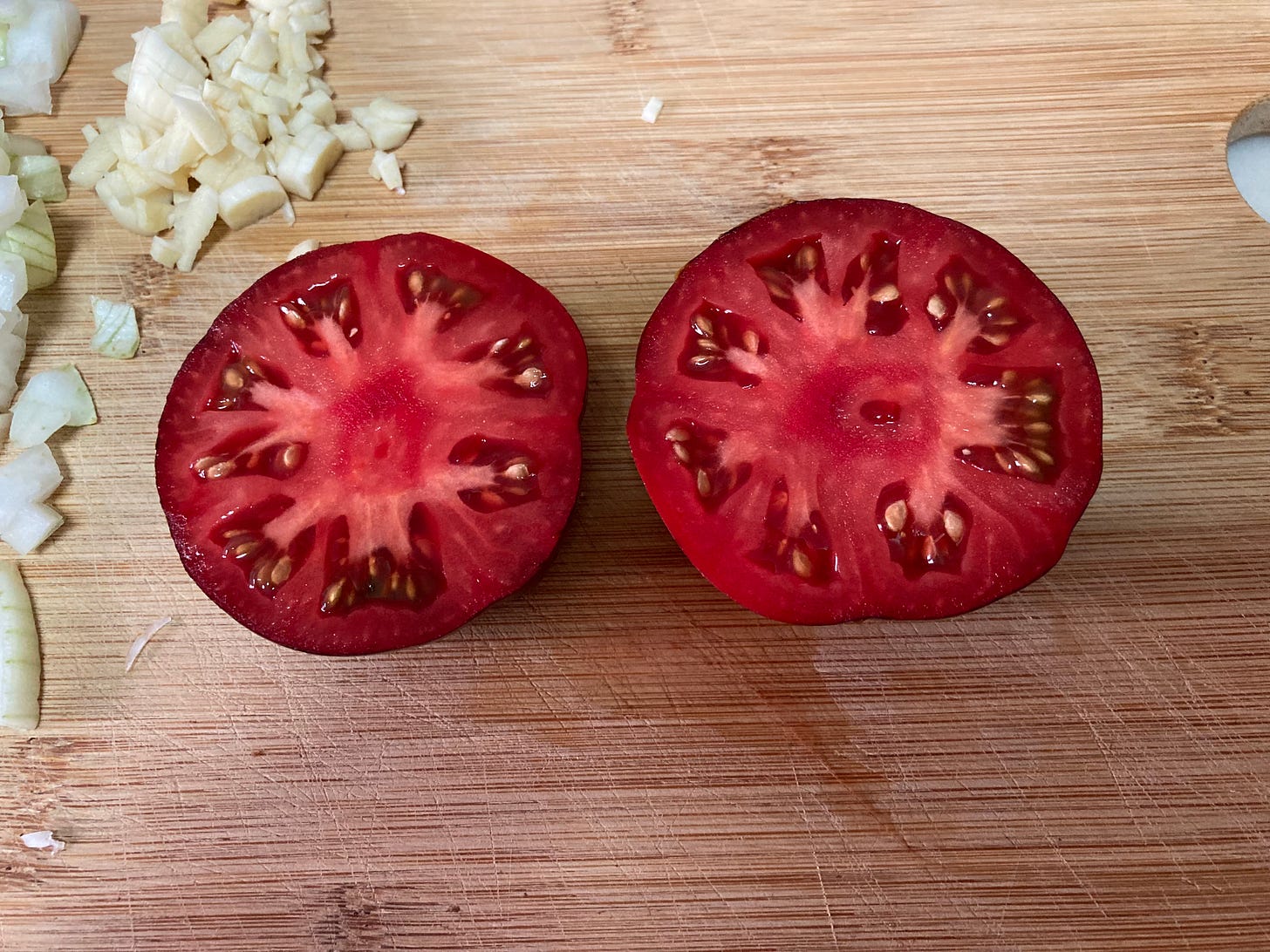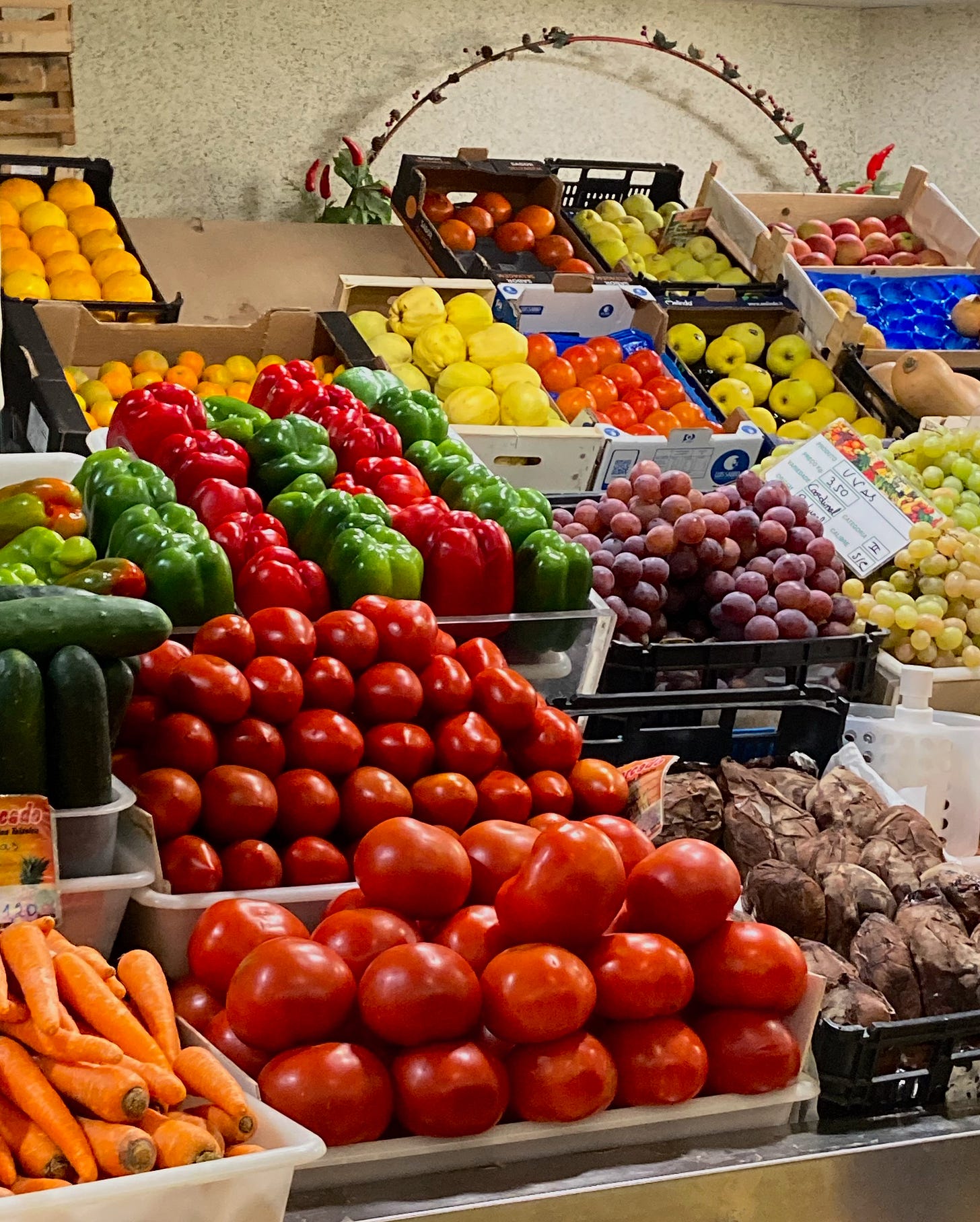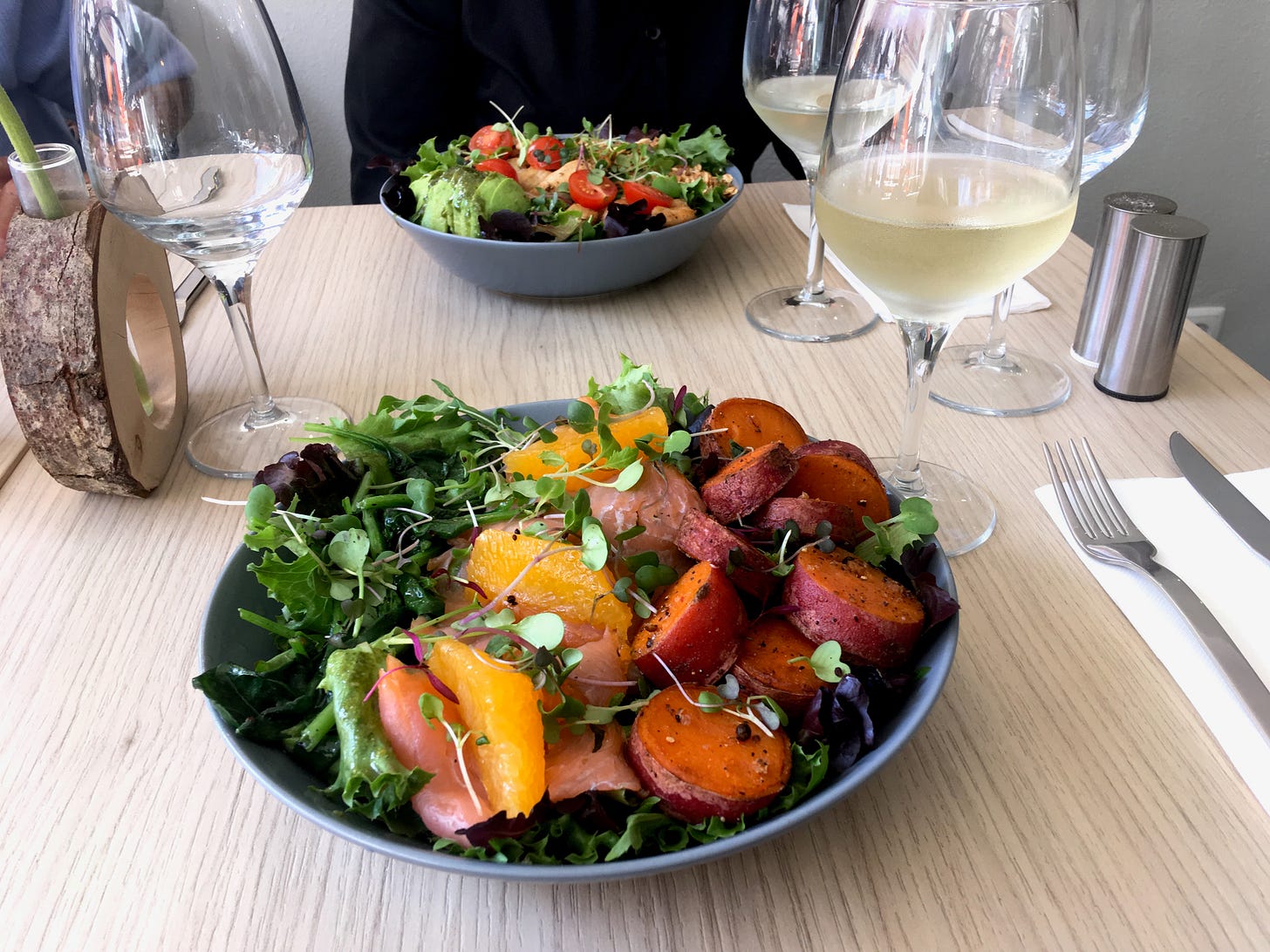"Why do you eat like your healthcare is free?"
That question was asked by someone living in China to an American when they talked about food and their typical diets on what is called Red Note, the Chinese version of TikTok.
And that’s a good question.
Of course the answer begins long ago when staples such as cereal, provided in a convenient and colorful box, was developed containing more sugar than anyone needed in a week. Unfortunately those cereals still exist with the target audience being young children.
The other day I bought "organic" broth and did not read the label as I usually do. When I went home and opened the container, I realized there was sugar in the broth! As a cook, I know sugar is unnecessary to make a broth and is simply a combination of vegetables such as chopped carrots, celery and onion cooked in water with maybe a touch of salt and other seasonings to taste. I find one bay leaf adds the right touch of flavor along with maybe some finely chopped garlic.
Anyway, the reason I read labels is because many years ago I discovered the hives I suffered from were caused by derivatives of oil found in processed foods and some sodas such as Coca Cola that I consumed. Yes, I am referring to the oil that comes out of the ground. The chemical compounds derived from petroleum are found in food coloring and preservatives. Read a label and you will find food coloring and preservatives in most store-bought processed food in the US along with sugar described in its various forms such as sucrose, glucose, corn syrup and dextrin to name a few.
Which brings me to the issue of obesity in the US which is a major health concern.
Living in the EU for some time, I enjoyed fresh, inexpensive and freely available produce either at what we term in the US a “farmers market” or at the grocery store. Sometimes I would take photos of the breads, produce, fish, olives, dried fruit and nuts with the cost and send it to my daughter living in the United States so she could see how life can be.
The food is also pesticide free. The local farmers in Portugal do not use horrific pesticides such as Roundup because they find it kills the pests along with everything else. Instead they have come up with methods to avoid insects that have been shared through the generations. So far, at least in Portugal, there is no "Big Ag", just a variety of small and larger farms providing plenty of food for the population with enough to export.
I enjoyed buying fruit and vegetables that had been picked the day before, and was enough for a week, for no more than 5 euros, 10 euros if I splurged and bought dates from North Africa that were as large as my palm, fresh and sweet and almonds for my snacks.
The bread is rich with grains and delicious. In the mornings I would pick up a loaf of bread at the bakery just out of the oven that was too warm to slice. It was heaven.
The bread does not last more than two or three days because there are no preservatives in the loaves but that's a small price to pay for bread that could be devoured, every wonderful slice of it, in just a few days.
Even though I had great enjoyment from eating the wonderful foods, I lost weight. During my first year in Portugal I lost 20 pounds, in the next two years, I lost another twenty even while enjoying the wines that Portugal produces. These wines are inexpensive, by the way, and plentiful with more varieties than you can ever try in a lifetime.
It was due to the fresh fish and poultry that is available along with the produce and walking, something Europeans do, that I lost weight without even thinking about it.
When I bought my first whole chicken, I had planned to cut it up, as I did in the US, and prepare it in various ways. But when I tried to cut the chicken into pieces in Portugal, the sinew was so thick and tough that I gave up and from then on had the butcher chop up the chicken with a clever because that is the only way to cut a chicken that had the opportunity to run around and become strong and healthy. There is no fat on the chickens as the ones you find in the US. The fat is even between the muscle fibers in a chicken here but not in the EU. The chickens are smaller there because they are not pumped with growth hormones and are allowed to move around. For that reason, large chicken breasts, something Americans seem to like, are non-existent in Portugal. The chicken is smaller, fresh, easy to prepare and with an excellent taste.
In terms of prices, I was shocked to find produce in the US is now sold by the piece! When did this happen? Have they made produce so expensive that’s it’s better to list it per piece than per pound? Produce is now so precious that you can hardly afford to buy it. You’d think there was a shortage.
On my first night in the US, I went to a local organic store which I can only call the "boutique of precious foods". Everything was displayed as if I was in a high end fashion shop on Fifth Avenue and the prices reflected this created ambience.
At another store, there was a bottle of wine from Portugal that cost 4 euros, if not on sale, in the EU. At this store it was $12.00. (Scratch that, yesterday the price went up to $13.00.) There is no reason for such a high price and only shows the mark-ups on food are created due to a lack of regulation and the conglomeration of food companies and corporations setting prices at will.
The prices I saw that shocked me are in a working class community with people who put in a hard day’s work and then need to buy enough for themselves and their families. These prices are not in an area such as Beverley Hills or Manhattan, this is in the rest of America.
There is no shortage of food in the US, only a shortage of regulations.
It is interesting to see that the town where I live is surrounded by farmland and yet, farm to table is at a heavy price.
The highway in town is a string of strip malls and each center has three to four fast food establishments, Taco Bell, McDonald's, Wendy's, Carl's Jr., Jack in the Box, Arby's, Chipotle, Dairy Queen and add to that more local burger and pizza establishments.
In Caldas da Rainha, the closest town to where I lived in Portugal, there were two fast food locations, both McDonald's. Even though one was across the street from the high school and the other in a business area, I rarely saw anyone in them.
Instead, if you want a quick and inexpensive lunch during work, you go to a local restaurant where they serve a plateful of food and your choice of a beverage. Usually the plate is either fish or a steak, some form of a potato and fresh vegetables such as carrots and broccoli. I could never finish my lunch and kept the remainder for dinner. The cost, about 5 euros without wine or a beer.

About the label "organic". In Portugal there is no need to call anything organic because most of it is. In the US, with that label, the cost goes up, sometimes way up. I have read many reasons given for organic foods to cost more but I'm not so sure now. If Portugal can do it, why can't we? Also, I'm still not sure, when I see a label specifying the product is organic in the US, that it actually is.
During my first visit to a grocery store in Portugal, I was amazed at an aisle, a long aisle, with nothing but different labels of olive oil. It was so amazing that I shared a photo with my daughter. In the US, when I go to a grocery store, I see an entire aisle of nothing but chips of every possible variety and flavor.
I see a big difference between the people in the EU and Americans living in the US. In Portugal, people look healthy, strong and content. Here people look tired, resigned and out of shape.
We have corporatized what we eat and are treated like automatons that will consume anything as long as it taste like something. The US is where it cost more to not have additives in your food when other countries don't add color, sugar, corn syrup or preservatives.
Something is very wrong and it’s reflected in the poor health and lack of vitality in Americans today.
-Dora Taylor
Post Script:
Lee Fang wrote an in-depth article titled:
This Pesticide Rapidly Eradicating Insect Life May Also Harm Humans
Bayer's chemical became the most common pesticide in the world in recent decades. How the industry co-opted academics, regulators, beekeepers and the media to remain silent about the risks.
In his introduction he writes:
I wrote this nearly 10,000-word investigation into neonicotinoid pesticides ("neonics") found in our water supply, our gardens, and on the fruits and vegetables we consume. Research suggests these chemicals are a major contributing factor to widespread insect die-offs. Though targeted at agricultural pests, neonics end up killing native bumblebees, dragonflies, and butterflies. More and more studies suggest human risk. New research has found that neonics may contribute to decreased sperm concentration and testosterone levels, as well as impaired neurological development in children.








